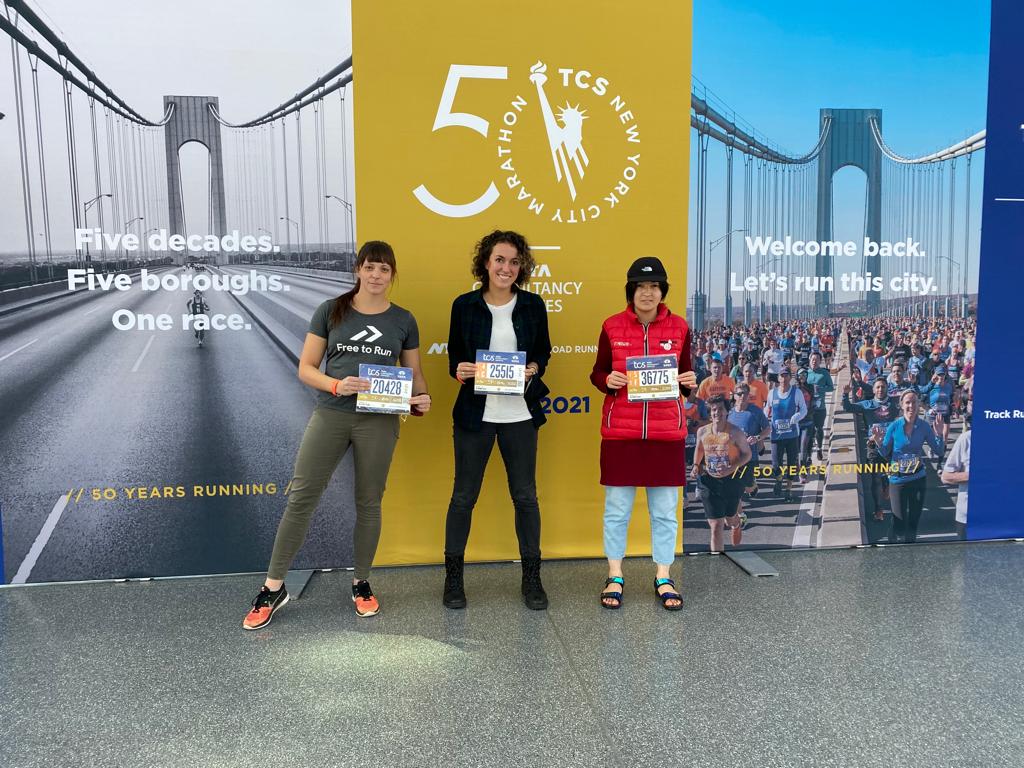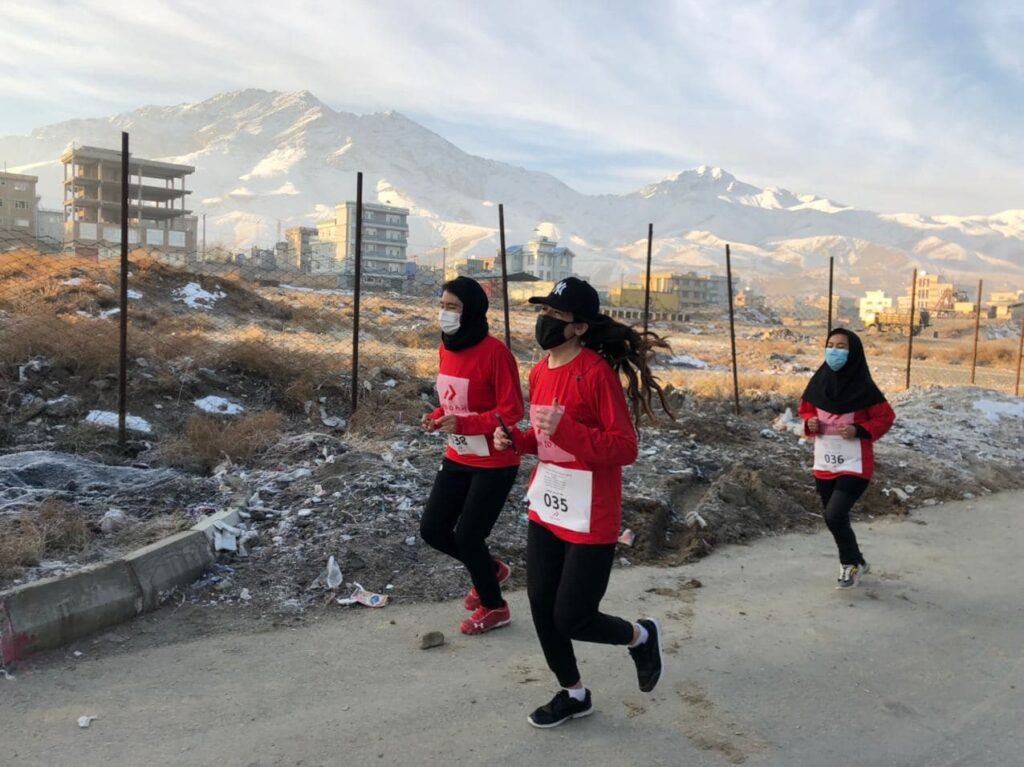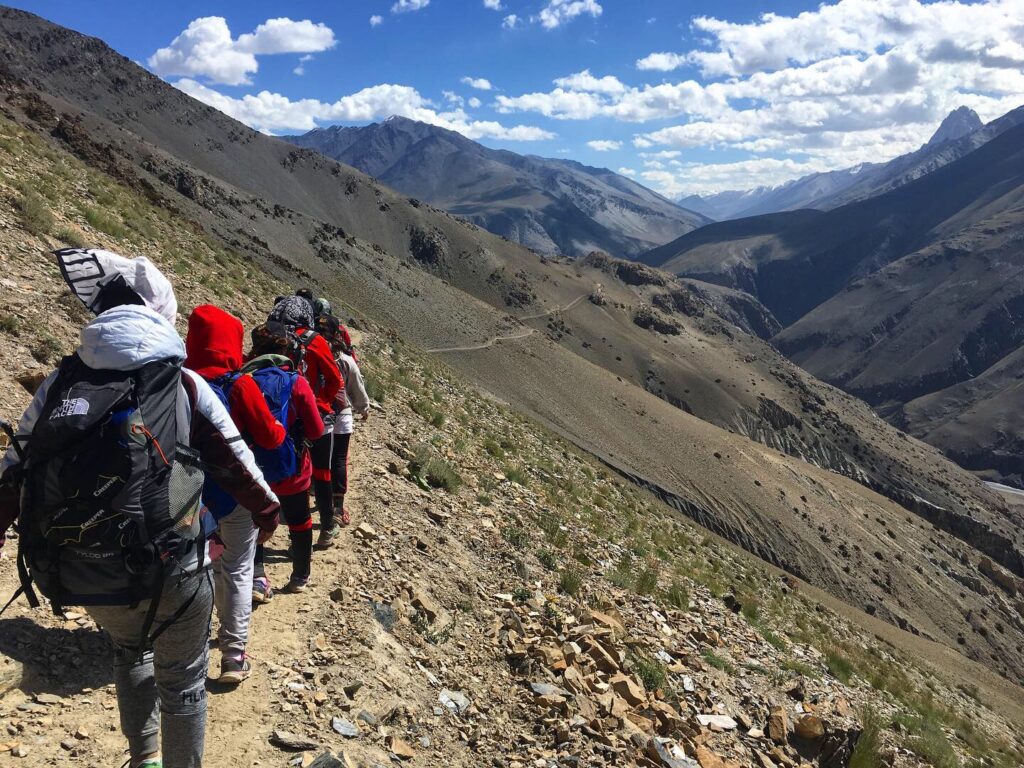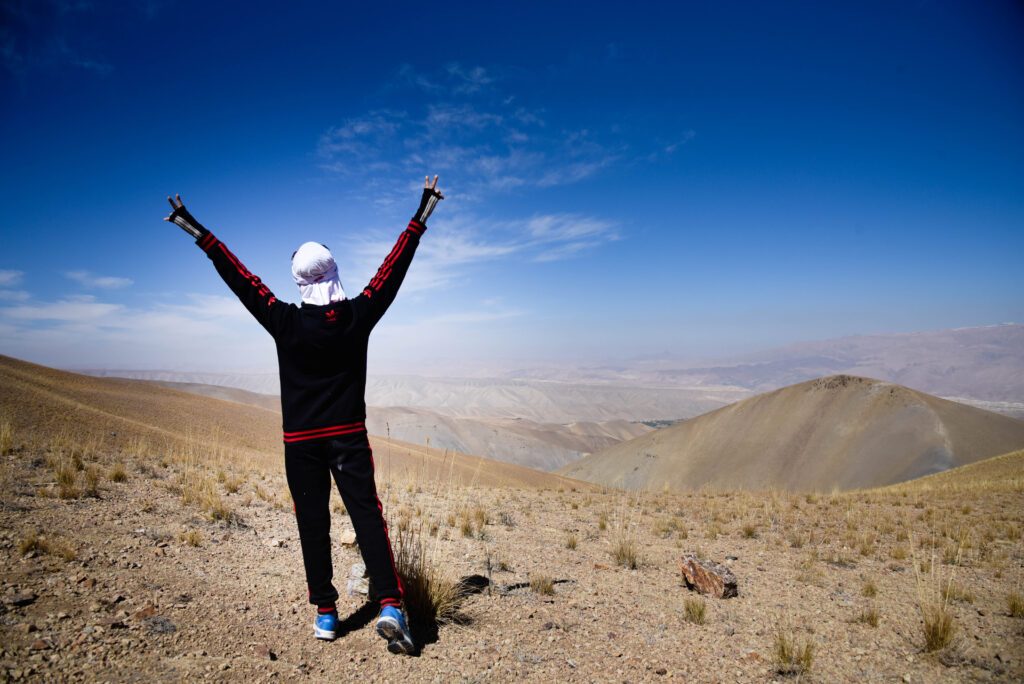Alumna Runs NGO Empowering Female Leaders in Conflict Areas
During a four-day stretch in November, Taylor Smith ’15 helped an Afghani family resettle in New York, ran the New York City Marathon to raise money for the nonprofit of which she’s the executive director, and then flew to Iraq for a three-week stay to help with logistics for a marathon.

Smith has a strong connection to Afghanistan and Iraq after working as the executive director in both countries for Free to Run. The NGO’s mission is to develop female leaders in regions of conflict through outdoor sports and education.
She was drawn to both countries because she wanted to form her own opinions about them.
“I was living in Iraq the year after I graduated, freelancing, working for local organizations. I’m an avid runner. There weren’t many places you could run back then as a foreign white woman,” said Smith. “I hate treadmill running and discovered Free to Run because it’s the only organization specifically doing this work.”
When she landed in Kabul, she was the NGO’s first program manager and first person on the ground.
“Afghanistan is absolutely stunning. There is a variety of landscapes,” said Smith. “There’s an untouched feeling of wilderness and remoteness.”

Just jumping into the job was similar to her first day at Emerson College.
“I have a distinct memory of my first day of class at Emerson. You go into a classroom and think we’ll be here for two hours being lectured,” said Smith. “I remember then going to do a man on the street [interview] after the professor kicked us out. The thing about Emerson that most prepares you for this career: You just don’t teach it, you do it.”
Running and camping in such beauty, combined with the job’s mission, made Smith fall in love with Afghanistan. It was supposed to be a six-month job, and her plan was to go back to freelancing as a journalist. She stayed for three years, only leaving in 2020 once the pandemic hit.
She used the same skills with Free to Run she did as a freelancer, but with a more specific purpose and long-term goals of building the program. Part of Free to Run’s mission included reclaiming public spaces and being able to run and experience the freedom of movement.
“When I first got there, I had to negotiate with businesses and companies to run in a 100-meter yard,” said Smith. “That was the beginning. In later years we were able to do multi-day camping and hiking expeditions in remote parts of provinces. Families trusted their daughters with us and the girls were very excited to go.”

Smith was particularly proud of the friendships forged among girls from different provinces after spending a week camping and hiking together. Smith communicated with a mix of English and Dari.
The program was affected after the U.S. pulled out of Afghanistan. Knowing a deadline was looming, the organization identified governments to help, worked to get visas processed, and got high-risk staff members and people out of the country. Most of the staff left Kabul with only the clothes on their backs. Some staff members are still in Afghanistan.
“[Including Iraq] we had over 3,000 women participating in the program, with well over 2,000 in Afghanistan,” said Smith. “We’re trying to stay in touch and provide resources to those who want to leave and have no future in the country.”
Those in power have a different view of what women should, and can do, in society. The organization continues to watch how the political situation plays out in the country, and is also brainstorming to see what programming looks like moving forward. Once the new normal presents itself, the organization will know what it can and cannot do.
“Funding is a struggle because lots of donors and the U.S. government froze funding,” said Smith. “We’re doing what we can do to keep participants as safe as possible with part of the funding.”
While the Afghanistan programming is in flux, the Iraqi program is full steam ahead, said Smith.
“There’s way more to life than just war or conflict. Oppression is very much present and does impact society. People are people and they live lives no matter the circumstances,” said Smith. “The resiliency I’ve seen in Afghani and Iraqi people is astounding and inspirational, and they’re incredibly hospitable even with these incredible challenges.”
Smith said there is a beauty to the population she works with, not taking anything for granted. They have the same dream and desires as anyone else.

“I used to say Afghani teenage girls are the same as American teenage girls. They have the same struggles, trying to figure out who they are, and have a lot more in common than there is different.”
Smith said her experiences have led her wanting to know more about policy. She said during the evacuation, her organization had no control over what was happening. It was hard for her to see people she cares about being affected.
“I think it’s one of the things I’m considering [for my future],” said Smith. “I want to take everything I’ve learned and use it to influence policy to be more people centered.”
Categories